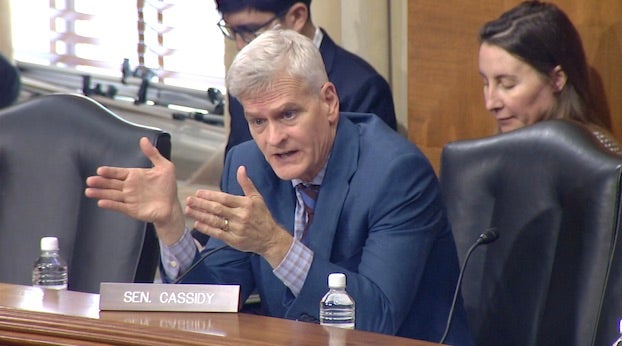State’s co-ops take PSC issue to court
Published 6:00 pm Tuesday, July 2, 2019
Ten of the 13 electric cooperatives in Louisiana are asking a state court to determine how much authority the state Public Service Commission (PSC) has over their operations. The rural co-ops provide electricity for nearly half of Louisiana’s residents.
The five elected members of the PSC set rules for the co-ops after learning the 96 co-op board members who serve part-time and legally can’t receive a salary collected an average of $26,250 in 2017. Those funds were for travel expenses, pier diem payments and insurance coverage.
Trending
The nonprofit utilities initially were set up during the New Deal in the 1940s as a way to get electricity into rural areas that privately owned utilities refused to serve.
The PSC told the co-ops to directly let their members know how much the directors receive in compensation and then hold a vote to allow the co-op members a chance to approve or reject the amounts.
Randy Pierce, who heads the Dixie Electric Membership Corp. (DEMCO), said the cooperatives aren’t trying to protect director benefits. They aren’t as lucrative as the PSC thinks, he said.
Pierce said, “Right now, as a general manager, I have one set of rules that tells me what to do through our state statute and through our (corporate) bylaws. I have, on the other hand, an order from the PSC that says many opposite things.”
The lawsuit says the commission has no jurisdiction and is violating state law if it attempts to dictate to the privately owned co-ops. It adds the Legislature has given the cooperatives’ respective members the right to set term limits for board members and other corporate governance matters.
The PSC has been given authority over electric companies that operate as a monopoly in their service areas. Its commissioners argue that their constitutional authority to oversee what customers are charged extends to business practices, such as director compensation, that could figure into rates.
Trending
The commissioners haven’t filed an answer to the co-op lawsuit, but they voted to stay enforcement of their order until the court decides the issue. Judge Richard “Chip” Moore of the 19th Judicial District in Baton Rouge hasn’t scheduled any hearings on the lawsuit.
A major question that needs to be answered is whether the compensation co-op directors receive has any major effect on the cost of electricity to their members. We hope the court reaches a quick decision on this dispute that has gone on long enough.





